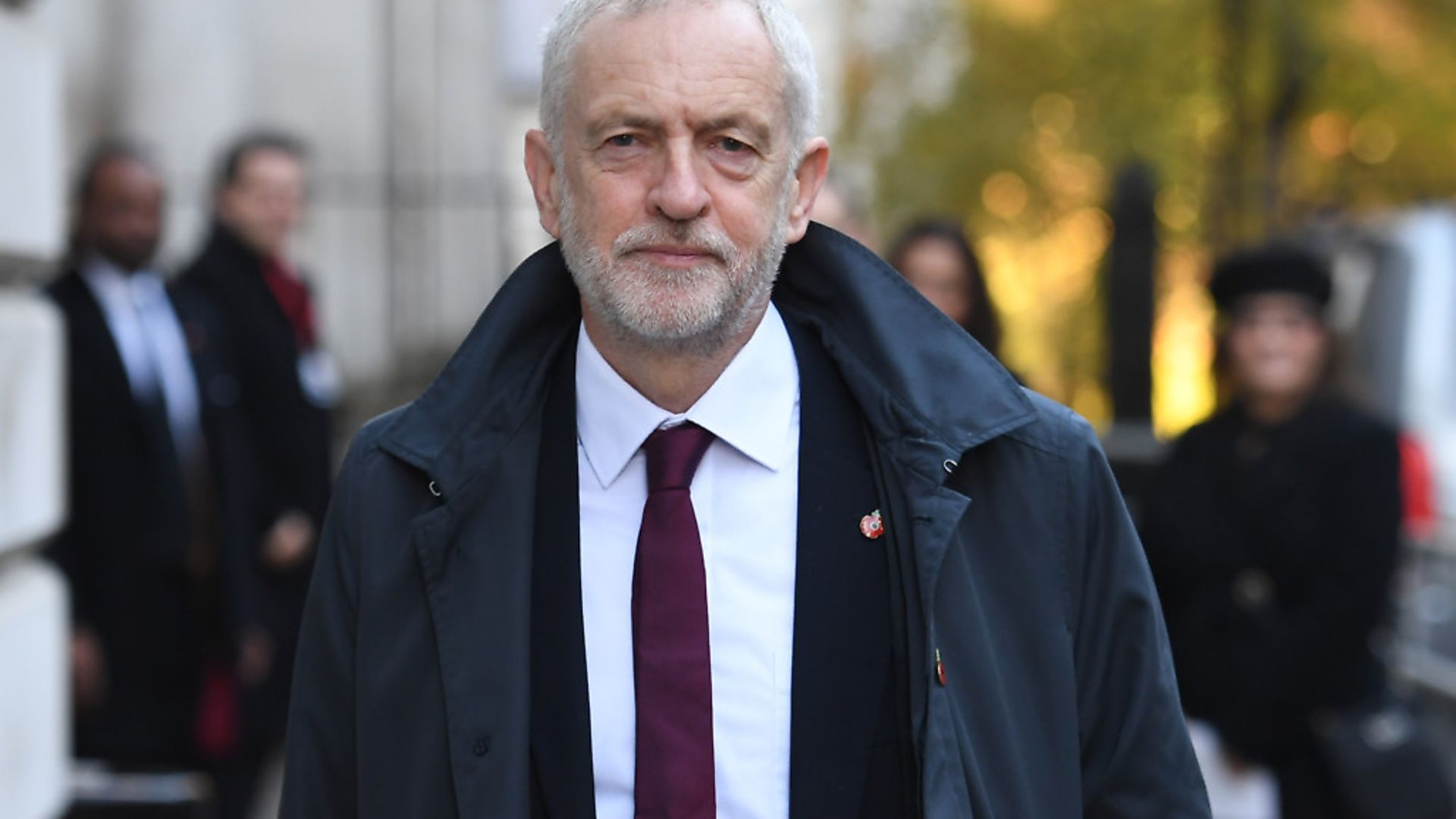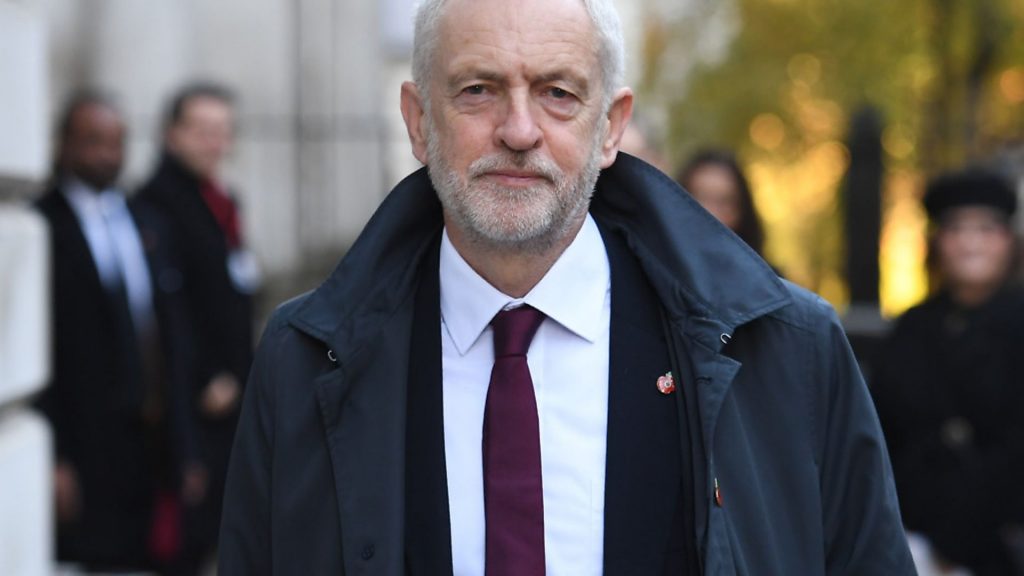
Mitch Benn explains why Jeremy Corbyn is no different from any other politician.

Let’s get one thing straight right away: there was nothing remotely wrong with the coat Jeremy Corbyn was wearing at the Cenotaph on Remembrance Sunday.
It was a perfectly presentable dark grey raincoat, and the fact that it had a hood was not only of no consequence but possibly a sound bit of forethought on Corbyn’s part given how weirdly susceptible to rainfall our current political ‘leaders’ appear to be.
For those of us of a certain vintage, it’s immediately apparent what’s happening here. Back in 1981 the then Labour leader Michael Foot was eviscerated in the tabloid press for turning up to that year’s ceremony wearing what the papers described as a ‘donkey jacket’, although a quick Google image search of the incident reveals the garment in question to have been a dark green wool overcoat; not perhaps as understated as the black Crombies politicians more typically turn out in for such occasions but not quite as shabby as the coverage suggested.
Nonetheless, the criticism (and the implied disloyalty to the dead of two world wars, and, by extension, Britain) hit its mark and helped cement the image of Foot as unpatriotic and shambolic.
Another 18 months of this narrative (and the burst of somewhat queasy patriotism which followed the Falklands War in 1982) and Labour’s crushing defeat in the 1983 general election (the election in which Jeremy Corbyn first won his seat, incidentally) was assured. This week’s attempt to turn Corbyn’s anorak into ‘Coatgate’ is merely the Tory press trying the same thing again.
It is never easy to keep the memory of Foot entirely absent from one’s thoughts when contemplating Corbyn; the left-wing intellectual elevated to the leadership after the party loses the centre ground; the presiding over (while seeming to be only dimly aware of) the Party’s gradual absorption by a hardline (sometimes thuggishly so) insurgency, purging ‘centrists’ and anyone else considered ideologically impure… the questionable affiliations with, if not necessarily terrorists themselves, organisations which have taken a very relaxed attitude to terrorism when they consider it ‘justified’.
It’s only Corbyn’s surprisingly strong showing in 2017’s snap election which spoils the analogy. If he’d been up against the real Margaret Thatcher (rather than May’s paltry Thatcher tribute act) and the country had been flushed with post-military victory pride rather than riven with post-EU referendum jitters, who knows how he’d have fared.
But you can drive yourself crazy with this sort of counter-factual conjecture. By the same token, if Grenfell Tower had burned down two weeks earlier, Corbyn would probably be prime minister now.
There are far more pressing concerns where Corbyn is concerned than his choice of outerwear.
Whenever I express (or retweet) any misgivings about Corbyn I’m immediately rounded upon by his followers, outraged that I dare cast aspersions on ‘a man of principle’. In the same way that Corbyn’s detractors will seize upon his ‘shabby’ coat as evidence of his lack of patriotism and decorum, his fans trumpet it as evidence of how he’s ‘not really a politician’, how he’s more ‘authentic and unfiltered’ and, as such, ‘honest and trustworthy’.
There’s an old showbiz adage, which depending on the kind of books you read was either coined by French novelist Jean Giraudoux or George Burns: ‘Sincerity is everything, and once you can fake that, you’ve got it made.’
In politics, especially left-wing politics, authenticity is everything and once you can fake that, you’ve got it made.
Corbyn was recently interviewed on German television where he opined that ‘we can’t stop Brexit’. When Remainers pointed out that this is untrue, that Article 50 can be simply and legally revoked (whether permanently or pending a final deal vote) Corbyn’s supporters weighed in to the effect that by ‘we’ he simply meant the Labour Party; that, as the powerless minority, Labour is unable to prevent Brexit.
By this rationale, Labour is powerless to do, or indeed pledge, anything. If being in opposition means ‘we can’t stop Brexit’, it similarly means ‘we can’t end austerity’, ‘we can’t renationalise the railways’ and ‘we can’t fund the NHS’ and yet Corbyn promises all these things on a regular basis. So he’s dissembling when he makes such promises, or he’s dissembling when he claims he can’t stop Brexit. Either way, at some point, he is not being honest.
It’s increasingly apparent that not only did the Leave campaign break electoral finance laws, now where the money came from is also under investigation. Yet we find Corbyn, John McDonnell and their loyal spokesman Owen Jones laughing off the importance or significance of the possibility that our country’s future has been (perhaps irreparably) damaged.
Corbyn is a politician. He’s no more honest and principled than any other politician.
He’s just better than most at faking it.









